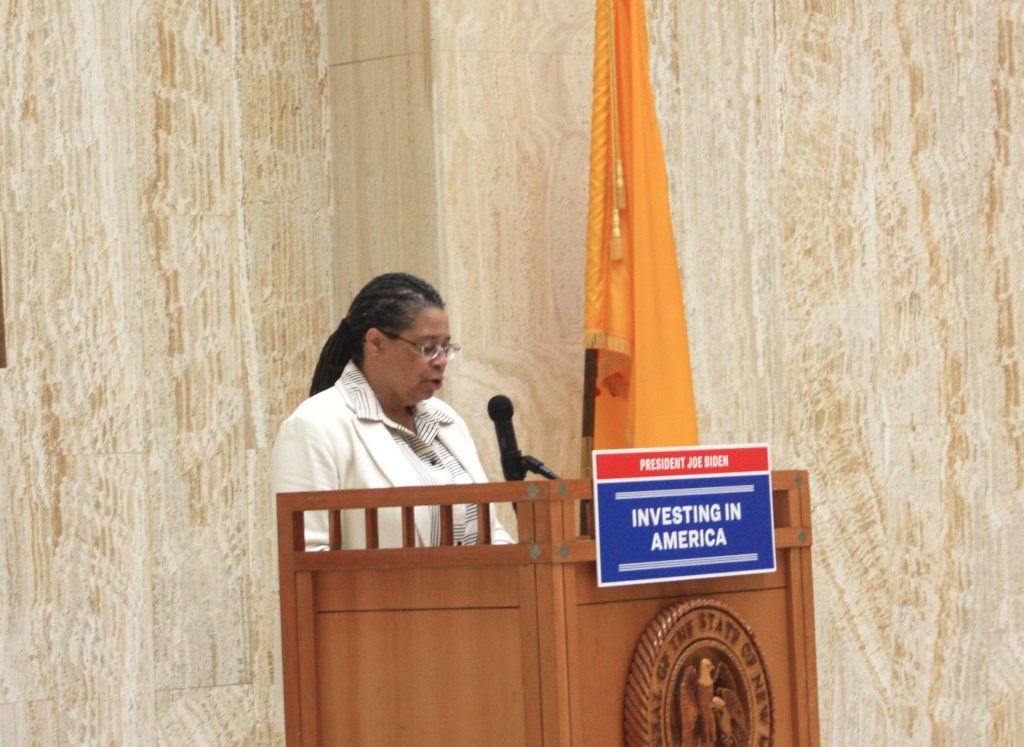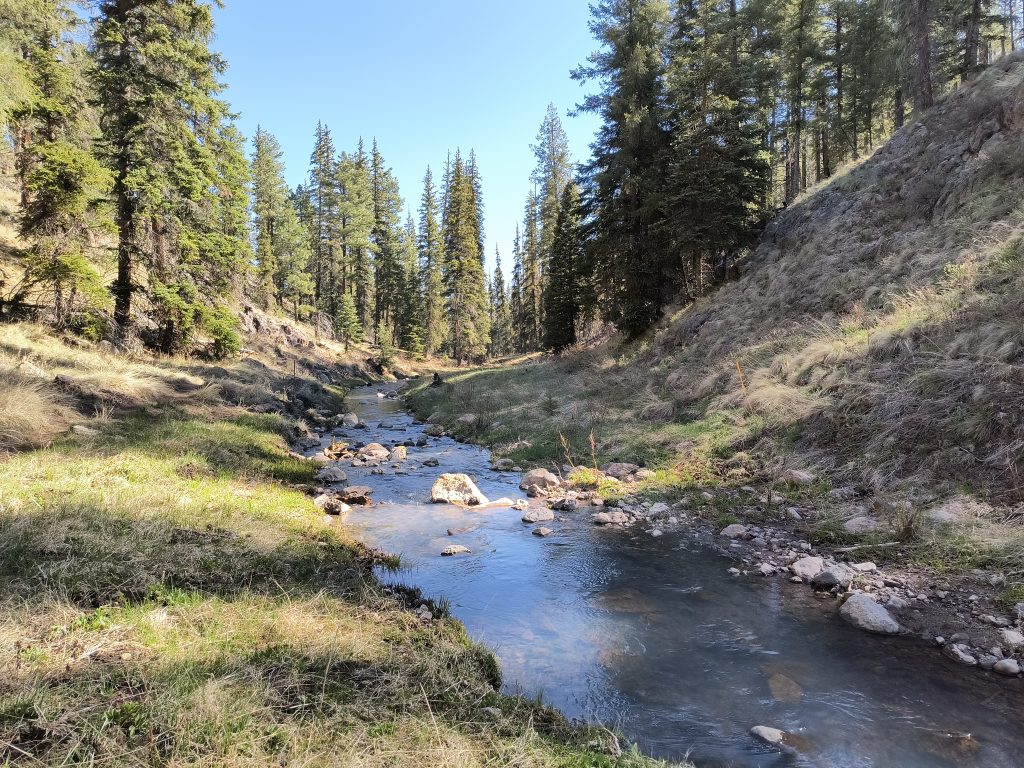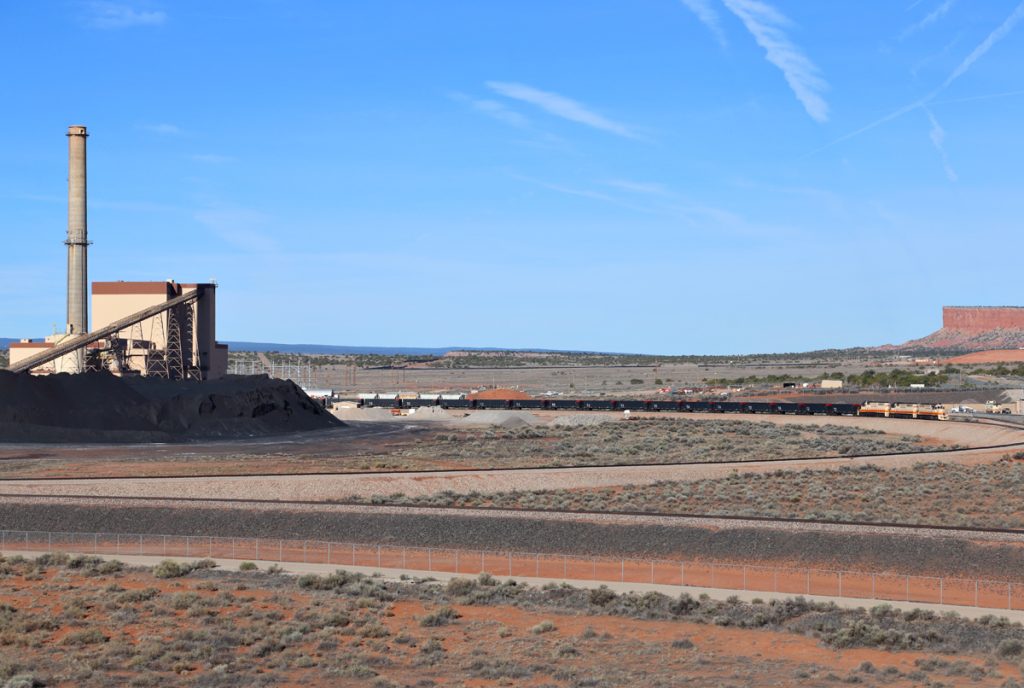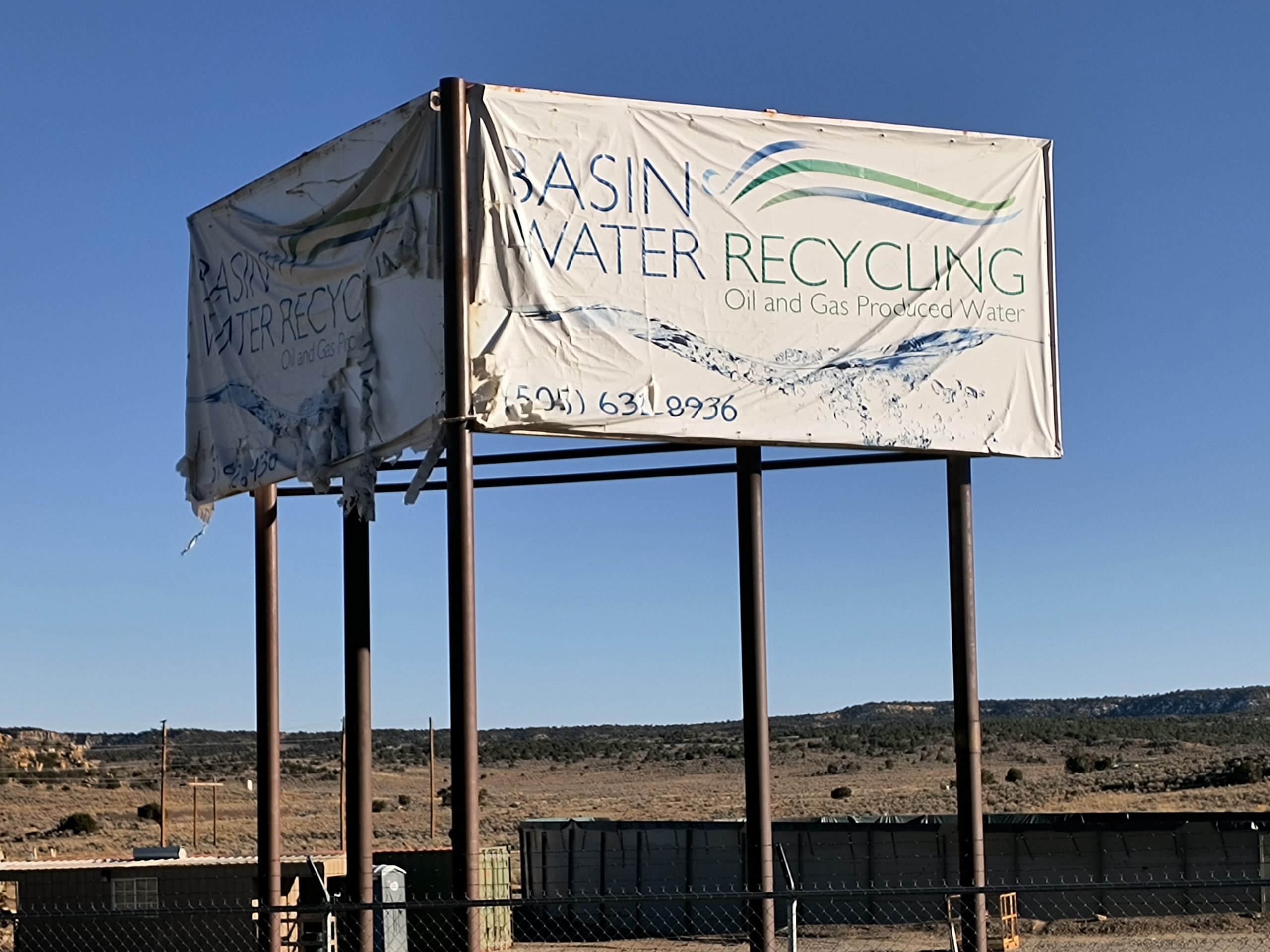Opponents of a proposed strategic water supply that would use treated brackish and produced water for certain industrial processes released a report on Monday that criticizes the governor’s proposal and alleges that she is making decisions to benefit the oil and gas industry.
Advocacy groups like New Energy Economy and the No False Solutions Coalition released the report alleging the effort is an oil and gas initiative ahead of a discussion about the strategic water supply in front of the Senate Finance Committee. Many of the groups involved in the report have been vocal critics of the governor and say she is not doing enough to address the climate crisis and distance New Mexico from fossil fuels.
The report primarily focused on painting Gov. Michelle Lujan Grisham as a politician who is trying to prop up her donors in the oil and gas sector while presenting herself as a climate champion on the national stage.
Lujan Grisham announced the strategic water supply in December and is asking the legislature to appropriate $500 million over the next two years to make this happen.
Sign up here for all the our free politics newsletter, sent three times a week during the legislative session.
The report claims that she has benefited from the oil and gas industry both in terms of the record budgets and campaign donations. It states that the governor has received $1.38 million in donations from the energy industries, more than half of which came from oil and gas interests.
The report also highlights meetings that the governor has had with various energy companies and trade groups, including 11 meetings with the New Mexico Oil and Gas Association. This is based on the governor’s public calendar from 2019 to 2023 and does not provide details about the discussions. The report’s authors also acknowledge that they cannot guarantee that the meeting actually took place, only that it was scheduled.
In an email response to NM Political Report, Maddy Hayden, a spokesperson for the governor, said that the administration “continues to build out clean, renewable energy sources at historic rates.”
Hayden said that is the purpose of the strategic water supply, which will provide water for those industries that are manufacturing and producing the clean energy sources as well as alternative fuel vehicles. She said as New Mexico builds out its clean energy economy, it is adding good-paying jobs “that support the transition away from fossil fuels, including in frontline communities.”
“The Strategic Water Supply is critical to all of those efforts, as well as efforts to ensure that as the clean energy economy flourishes, freshwater resources are preserved for other uses including agriculture (which encompasses around 75% of water use) and municipal/domestic use (which encompasses around 20% of water use),” Hayden said.
What is the strategic water supply?
The idea behind the strategic water supply is that companies will clean up the produced or brackish water and the state will essentially buy it on behalf of industrial customers like green hydrogen producers or solar panel manufacturers.
Sen. Crystal Diamond Brantley, R-Elephant Butte, compared it to the state serving as a middleman during a Senate Finance Committee panel discussion on Monday. She questioned why New Mexico would step into that role and if the private sector could fill it instead.
The New Mexico Environment Department Secretary James Kenney told her that, in theory, the private sector could fill that role but has not chosen to do so. He said part of the reason that the private sector has not stepped into that role is because companies that treat the water need to have some certainty. The state serving as a long-term purchaser provides that certainty.
Kenney said that the state would purchase treated produced water, which it could use as an economic lever to attract businesses.
While some activists opposing the strategic water supply who spoke during a press conference on Monday seemed at times confused about what constitutes brackish water—with one even saying that brackish water “is not a real thing” and just means water from deep aquifers—they focused primarily on produced water.
Brackish water is naturally occurring water that contains high levels of salinity. It can be found in underground aquifers or in surface water, such as in estuaries where ocean and freshwater meet. Brackish water can also be found in some playa lakes. Produced water, on the other hand, is a byproduct of oil and gas production and can contain high levels of saline water from deep underground as well as fluids that were used during the drilling process. In wells that were drilled using hydraulic fracturing, or fracking, methods, that could include frack fluids. Some of the chemicals used for fracking are considered proprietary, or trade secrets, and therefore are not disclosed to the public.
Currently, the majority of produced water in the United States is either reused within the oil and gas sector in lieu of freshwater or it is injected into disposal wells that have been linked to increased seismic activity in parts of the country including the Permian Basin.
Drought and increasing water scarcity as well as concerns about an increase in earthquakes from injection wells are reasons why various states including New Mexico and Texas are looking for other ways to use produced water.
The question that hangs over discussions this legislative session is whether it could benefit the environment and what risks it might pose to ecosystems and human health.
Rebecca Sobel, the organizing director of WildEarth Guardians, argues that produced water is not the best use of money when it comes to water resiliency.
“Instead of spending half a billion dollars on expensive and unproven treatment of oil and gas ‘produced water’ waste to attract and subsidize water-intensive industries, leadership should be incentivizing efforts that are actually appropriate for New Mexico’s water scarcity,” Sobel said in a statement.
The Produced Water Act of 2019
The strategic water supply proposal follows the 2019 Produced Water Act, which encouraged the oil and gas industry to reuse, recycle and treat produced water instead of relying on freshwater resources. When the Produced Water Act passed in 2019, approximately 10 percent of produced water was reused or recycled within the oil and gas industry.
The New Mexico Environment Department regulates the use of produced water outside of the oil field.
The Produced Water Act also led to the creation of the Produced Water Research Consortium, which is led by New Mexico State University and was created through a memorandum of understanding with NMED and NMSU.
Opponents of the strategic water supply say that the Produced Water Act was never meant to pave the way for use of produced water outside of the oil and gas sector.
Use of produced water
The use of produced water is not a new concept. In fact, it has been used to irrigate agriculture in California for decades and there are various studies looking into the impacts that might have. One of the studies was released in 2021 and found that crops irrigated with diluted produced water in California did not pose significant health threats to consumers. One thing to note, though, is that California does not allow water produced from fracked wells to be used to irrigate food crops. And studies from outside of California have found possible ecosystem impacts.
However, Kenney said the strategic water supply is about attracting water-intensive industries to New Mexico.
“The idea came to a number of us working with each other across the cabinet, trying to think about how do we continue to grow jobs and economy in a state that is water starved?” Kenney said. “How do we continue to preserve freshwater resources for our communities? And how do we think about what the federal government has done, which is bring the inflation Reduction Act, the Bipartisan Infrastructure Law, the CHIPS act, and really catalyze the investment expansion and onshoring of these companies more domestically than we’ve seen in the past?”
He said federal policies and new funding opportunities are intended to bring water-intensive industries such as manufacturing back into the United States. Some of these industries will also play a key role in the energy transition.
“We’re at a crossroads in what how do we, again, preserve fresh water for our communities and keep that as the highest and greatest use and where are we going to get this water from so we’re not left behind for those industrial onshorings that are happening that, again, will help with battery manufacturing, critical minerals and other things that are so important for this transition,” he said.
If the strategic water supply funding does pass, NMED—which is tasked with overseeing produced water management outside of the oil and gas sector—could face some challenges. Not all produced water is created equal and some needs more intensive and expensive cleaning than others. Quality and quantity can vary substantially based on variables like geological formation, extraction technology, well age and chemical additives used in extraction.
Additionally, produced water can have very high salinity—sometimes much higher than seawater. That means expansive desalination would be needed. Treatment of produced water, which could include reverse osmosis or distillation, can be expensive.
In Texas, a study found that treatment could cost up to $10 per barrel and that big infrastructure investments would be needed. That infrastructure would include treatment plants as well as distribution systems.
New Mexico would not be building that infrastructure, according to Kenney.
“The state is in the kind of a role of managing water on paper. The industries would be in the role of managing the water itself, like the literal movement of the water between the treatment and the finishing to the companies that would then consume that water,” he said.
Every Thursday, get the latest environment news from New Mexico in your email. Sign up here!





















